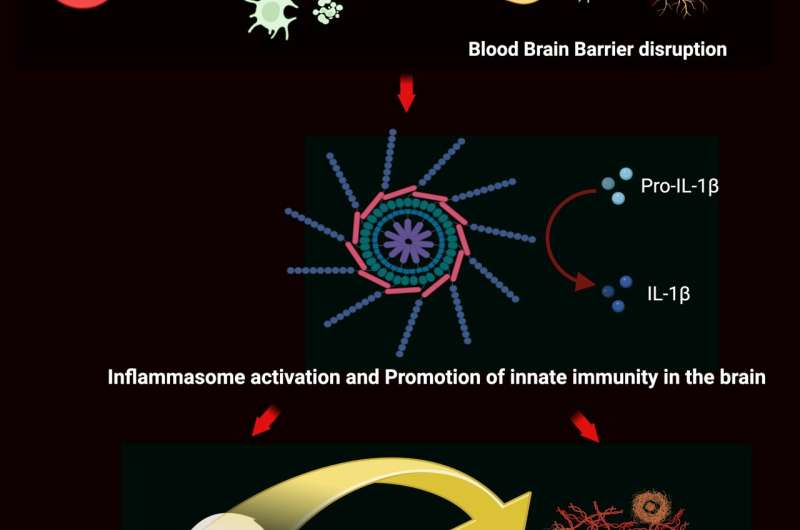This article has been reviewed according to Science X's editorial process and policies. Editors have highlighted the following attributes while ensuring the content's credibility:
fact-checked
peer-reviewed publication
proofread
Immune cells linked to anxiety, depression, and Alzheimer's disease

Regulatory T cells—work horses of the body's immune system—may also stabilize mood, according to a study. Forkhead box P3 (Foxp3) is a transcription factor that controls the production of regulatory T cells (Tregs).
Tregs are key regulators of the adaptive immune system; however, previous work also suggests Tregs can influence mood. Decreased Foxp3 expression is associated with major depressive disorders.
Giulio Maria Pasinetti and colleagues tested a line of lab mice whose Tregs can be temporarily depleted on standard tasks designed to measure depression and anxiety in the rodents. Treg-depleted mice were more likely to hide in darkness, moved less, and gave up on self-preservation actions more easily—suggesting that Treg-depleted mice were more anxious and depressed than control mice. The findings are published in the journal PNAS Nexus.
These neurobehavioral changes in Treg-depleted mice were reversed after restoration of Foxp3-expressing cells, and Treg-restored mice were more similar to controls than Treg-depleted mice were. Additionally, mice bred to model Alzheimer's disease showed cognitive impairments when their Tregs were depleted.
The authors posit that Treg depletion causes proliferation of peripheral immune cells, some of which can cross the blood-brain barrier into the brain and cause inflammatory responses in the hippocampal formation. This transient activation of innate immunity in the brain can cause anxiety, depression or Alzheimer's disease-type cognitive deterioration, according to the authors.
More information: Eun-Jeong Yang et al, Transient anxiety-and depression-like behaviors are linked to the depletion of Foxp3-expressing cells via inflammasome in the brain, PNAS Nexus (2023). DOI: 10.1093/pnasnexus/pgad251

















